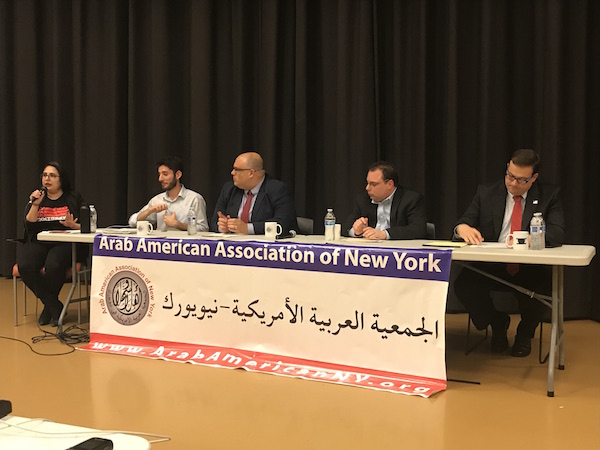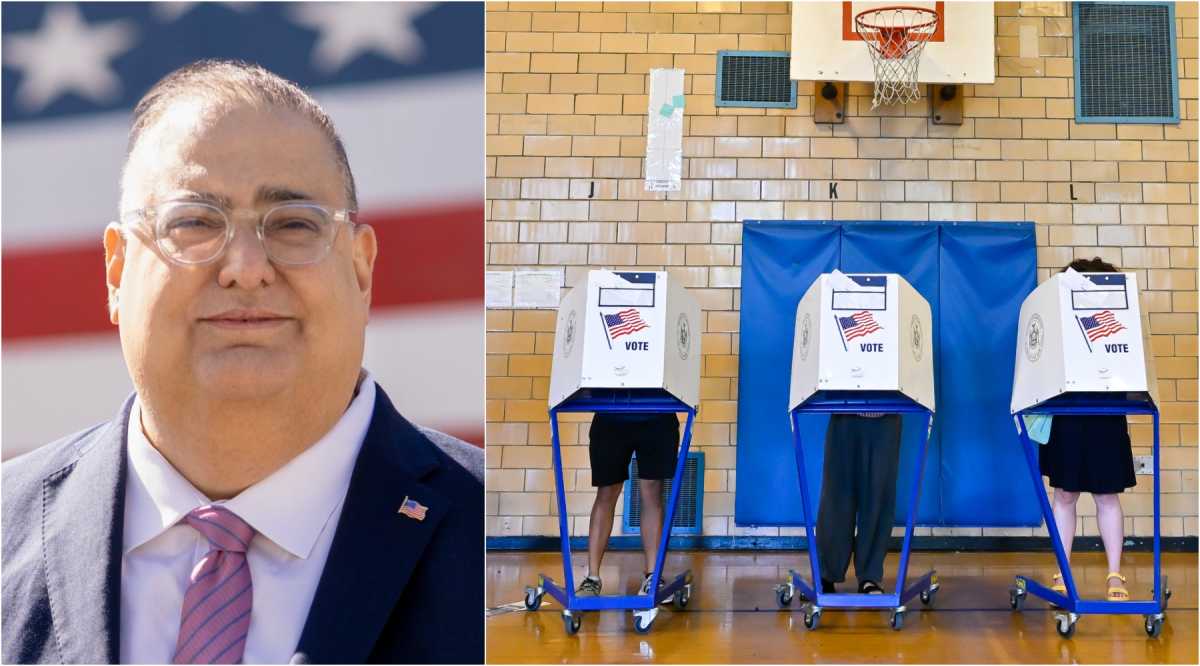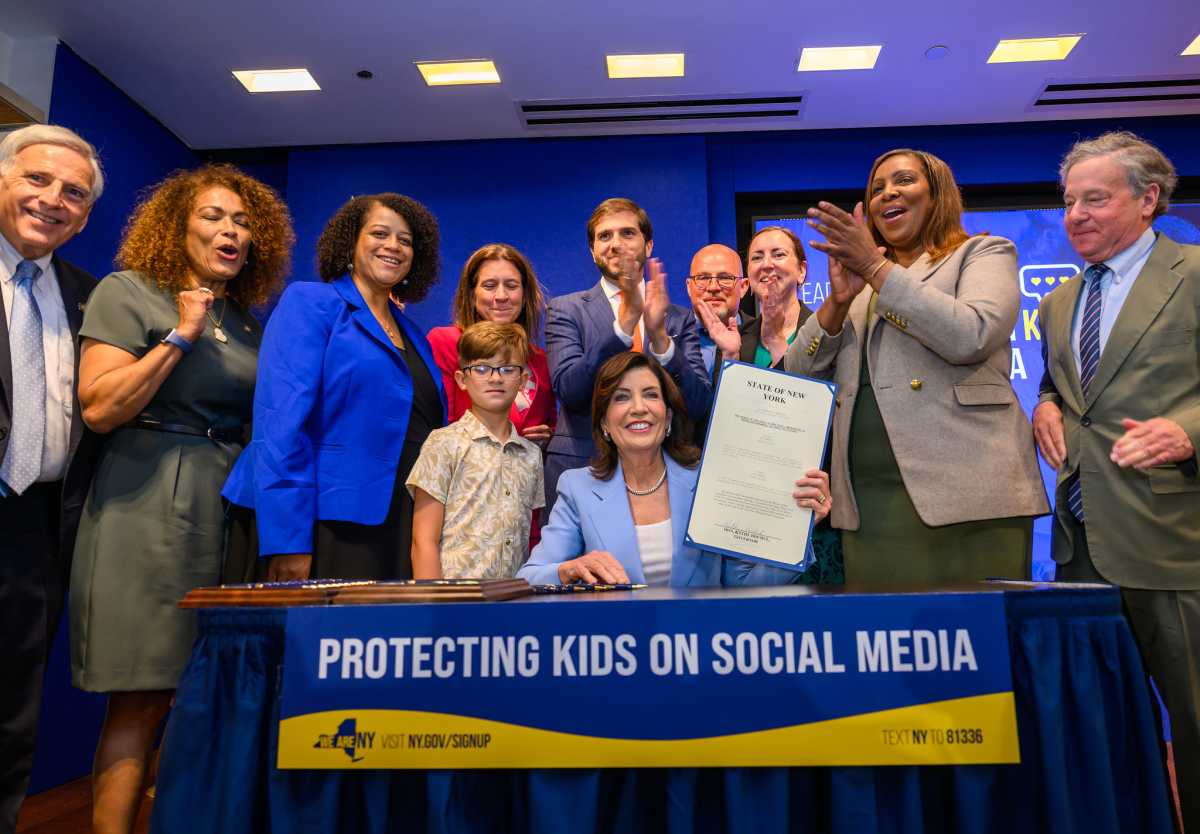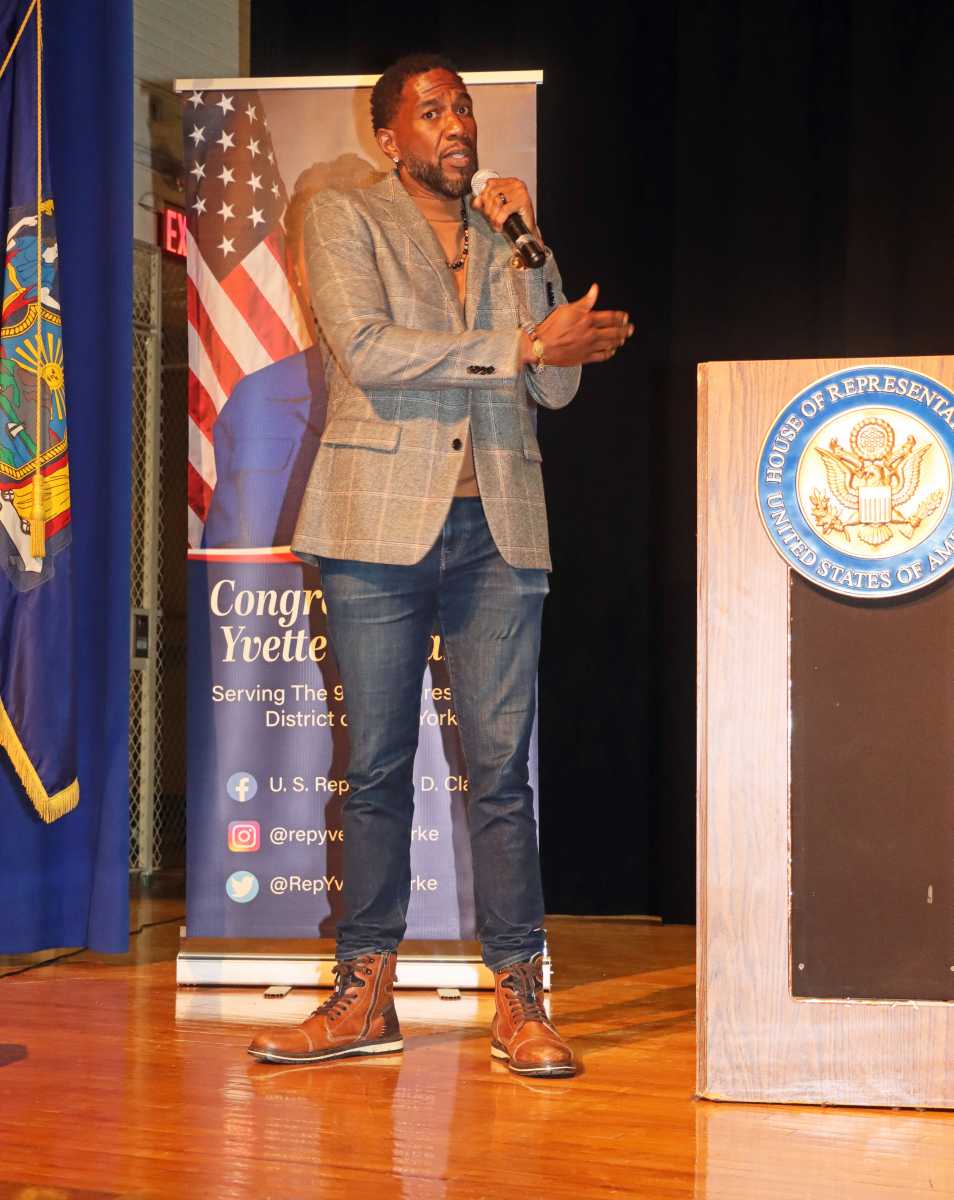Justin Brannan (D), John Quaglione (R) and Bob Capano (Reform Party) confronted diversity head on at last night’s city council debate for the open seat in the 43rd district covering Bay Ridge, Bensonhurst, Dyker Heights and Bath Beach
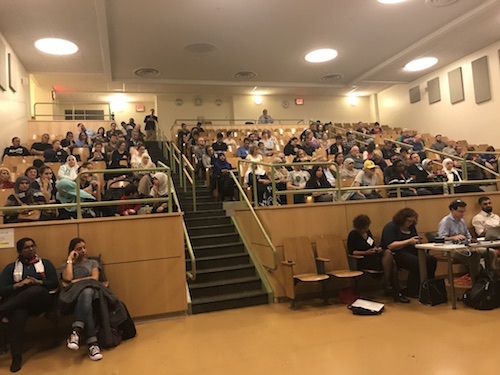
The Arab American Association of New York (AAANY), Fight Back Bay Ridge and the South Brooklyn Progressive Resistance co-sponsored the forum held at IS 30, Mary White Ovington Public School, 7002 4th Avenue in Bay Ridge. The organizers agreed they would focus on the needs of the large immigrant population –– a topic they say had not been addressed at other community debates.
“A lot of questions asked tonight were not amplified in earlier iterations of debate,” said Mallory McMahon of Fight Back Bay Ridge. “Because the Arab-American [community] is such a large portion of our neighborhood, we thought it was important that their voices be heard.”
Brannan’s opening statement set separate from the pack of politicians he sat next to, “Frankly some of my opponents may see some of the diversity as a threat where I see our diversity as our true strength,” said Brannan.
Capano on the other hand owned up to some opposition he expected to encounter in the room that evening.
“I do have a feeling there may be some disagreements between my views and many of yours,” said Capano, but added he believed in keeping an open dialogue and that officials are obligated to listen to their constituents.

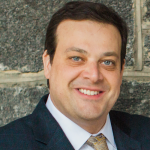
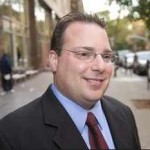
Quaglione spoke more about his accomplishments throughout the district as a staffer with State Sen. Marty Golden, but was the first candidate to mention he worked with Palestinian-American priest and strong Democratic opposition during the primaries, the Rev. Khader El Yateem.
The evening’s moderator and Executive Director of the AAANY, Rama Issa-Ibrahim, asked the three candidates to share their thoughts on the city’s ‘broken windows’ policing policy that holds when you go after nuisance type crime it brings overall crime down, and how it is criticized for its’ increased risk for racial profiling, immigration implications and the reduction of constituent’s civil rights.
Brannan spoke first and out against the policy and used the steady decline in crime since discontinuing stop-and-frisk as an example that excessive policing may not be the best practice.
Capano agreed with the current broken windows policy and referenced the city’s increased homelessness issue as a direct result of the current Administration’s aversions to aggressive policing. The candidate used a McLaughlin & Associates survey that claimed 46 percent of New Yorkers feel like their quality of life has diminished to support his stance.
Quaglione on the other hand took a more literal approach and discussed how he has helped store owners and the Metropolitan Transportation Authority (MTA) fix their actual broken windows, but concluded that he was in support of more city and community policing. The audience was less patient when Quaglione staved off the question on the city’s proposed ‘Right to Know Act’ now before the City Council.
The two-pringed legislation firstly requires police in a range of non-emergency police encounters to identify themselves and explain the reason for the official interaction. Secondly, it requires police officers to explicitly convey a person’s right to refuse a search when their consent is the only legal justification, and obtain objective proof that a person gave informed and voluntary consent.
“I believe that when a police officer is in a situation where only he knows if he’s in danger or what’s going on at the scene, I don’t think that I have the position to make a determination on that,” said Quaglione.
Capano and Brannan leaned on the opposite ends of the Right to Know Act, with Capano criticizing the policy claiming it prohibits officers from doing their jobs effectively while Brannan was in full support.
The seamless transition to police brutality, especially as it relates to residents with mental illnesses, incited a mayoral scoffing from Capano, but the candidate did suggest a civilian complaint review for offending officers. Both Brannan and Quaglione said the issue was being addressed with Brannan noting proper police training, and Quaglione citing the new body cameras set to go city-wide within the next 4 years.
All candidates opposed rescinding the Deferred Action for Childhood Arrivals (DACA) and intolerance targeted at Muslim-Americans, but were split on the IDNYC controversy to share personal data of cardholders with Brannan against sharing the information, and Quaglione and Capano were in favor of law enforcement having access to the information..
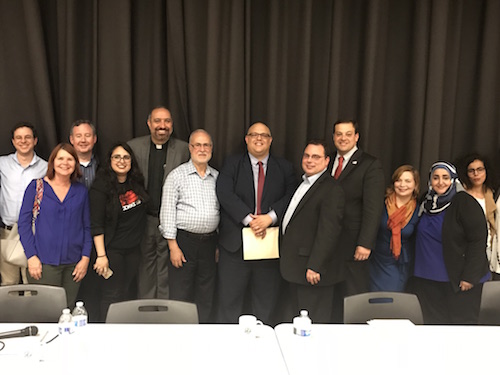
AAANY made sure to probe candidate’s on the mayor’s threatened sanctuary city policies, but when candidates kept talking about criminal activity in relation to the city’s immigrant population it sparked some pushback. Rabyaah Althaibani, a Yemeni-American community activist was among the first to speak during the Q & A.
“Every time you talk about immigrants and people of color, it almost always has to do with national security or community security or issues about crime,” said Althaibani. “We are hard-working immigrants and you need to acknowledge that.”
Also during the Q & A, audience members challenged Quaglione on his crime stats that show an increase in crime of which he responded that was only speaking of the month of May when he spoke of increase at the last two forums. Capano was confronted about his harsh campaign literature that targeted prominent Muslim-American leader Linda Sarsour and former Democratic candidate, El-Yateem.
Brannan went back and forth with an audience member who criticized his response to not support BDS, the Boycott, Divest and Sanction movement against Israel –– of which Capano also denounced while Quaglione declined to comment stating the issue is an international issue and not one that the New York City Council would ever have any jurisdiction over.
On President Trump and allegations of sexual abuse, Quaglione again declined to answer the question of whether or not he would vote for Trump, Capano said he would continue support of the president despite disagreeing with some of the things he has said or done, while Brannan offered a resolute no to the question.
“It’s hard to take other positions seriously when you say you would vote for Donald Trump,” said Brannan.


